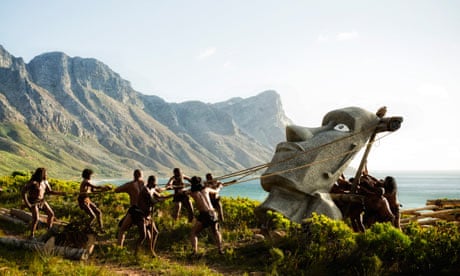A provocative new theory of history which has won influential support from Bill Gates poses the latest challenge to the coalition government plans to return to a traditional school curriculum.
Big History, a movement spearheaded by the Oxford-educated maverick historian David Christian, is based on the idea that the academic study of the past can no longer be carried out from a nationalist perspective. Christian and his acolytes argue that the discipline will progress only once it charts human activity with a global scope, looking at chains of cause and effect that do not respect national borders. On a Big History course, the species Homo sapiens is not even mentioned until more than halfway through.
"I believe human beings mark a threshold in the development of the planet, of course," Christian has explained, "but it is only part of the picture. What Big History can do is show us the nature of our complexity and fragility and the dangers that face us, but it can also show us our power, with collective learning."
The 66-year-old American-born academic is now a professor at San Diego State University after a long period teaching in Sydney, Australia. Originally an expert on Russia and the Soviet Union, Christian has been determined since the late 1980s to try to teach history on the largest possible scale and has become a popular speaker on the subject.
Fans of Big History want to put geology and the climate at the centre of the subject, alongside other branches of science and technology. They believe it is essential to show that the course of human life has been altered by both natural and manmade factors. So Big History emphasises the significance of the fact that 4.6bn years ago an exploding star created a crust for the planet that contained 5% of iron. As a result, the metal has helped humanity to kill prey and forge weapons.
Last year an education project was launched jointly in Australia and America, founded by Gates, the philanthropist and chairman of Microsoft. "The Big History Project began a few years ago after I took an online version of the college-level Big History course," Gates has said. "I really like how the course challenges students to wrestle with big questions – questions like how different timescales affect our perspective on history, how language transformed humanity, and what it means to be human."
After Christian and Gates met, they set up a free online version of the Big History course targeting US and Australian high schools, funded by Gates's charitable organisation, the Bill and Melinda Gates Foundation.
Gates also presented Christian at the TED 2011 conference in Long Beach, California. The aim of the new course is not just to alter the focus of history teaching, but to build a shared global discipline so that children can learn about the same connections. The curriculum has been also picked up by schools in Canada and Scotland. Since the summer, three south Ayrshire schools – Ayr Academy, Kyle Academy and Marr College – have been working with schools in Australia and America to pilot the free online curriculum, with the aim of making the courses widely available from August next year.
Christian's theories, which are almost opposite those of education secretary Michael Gove, will come to prominence in Britain next month when the History Channel screens a 12-hour documentary called Mankind, The Story of All of Us. Filmed over two-and-a-half years, it hopes to draw in new audiences by revealing surprising facts, rather in the manner of BBC2's QI; the UK version of the series, which starts on 14 November, will be presented by Stephen Fry.
Ben Goold, the British executive producer of Mankind, believes the series will prove that history is relevant to ordinary lives and rid the subject of its more dusty associations, with long lists of dates and kings and queens: "Today everybody acknowledges we live in a connected world because of the internet, but when you look back in time you see we have always been connected really." who made Sky's seven-part epic The British.

Comments (…)
Sign in or create your Guardian account to join the discussion